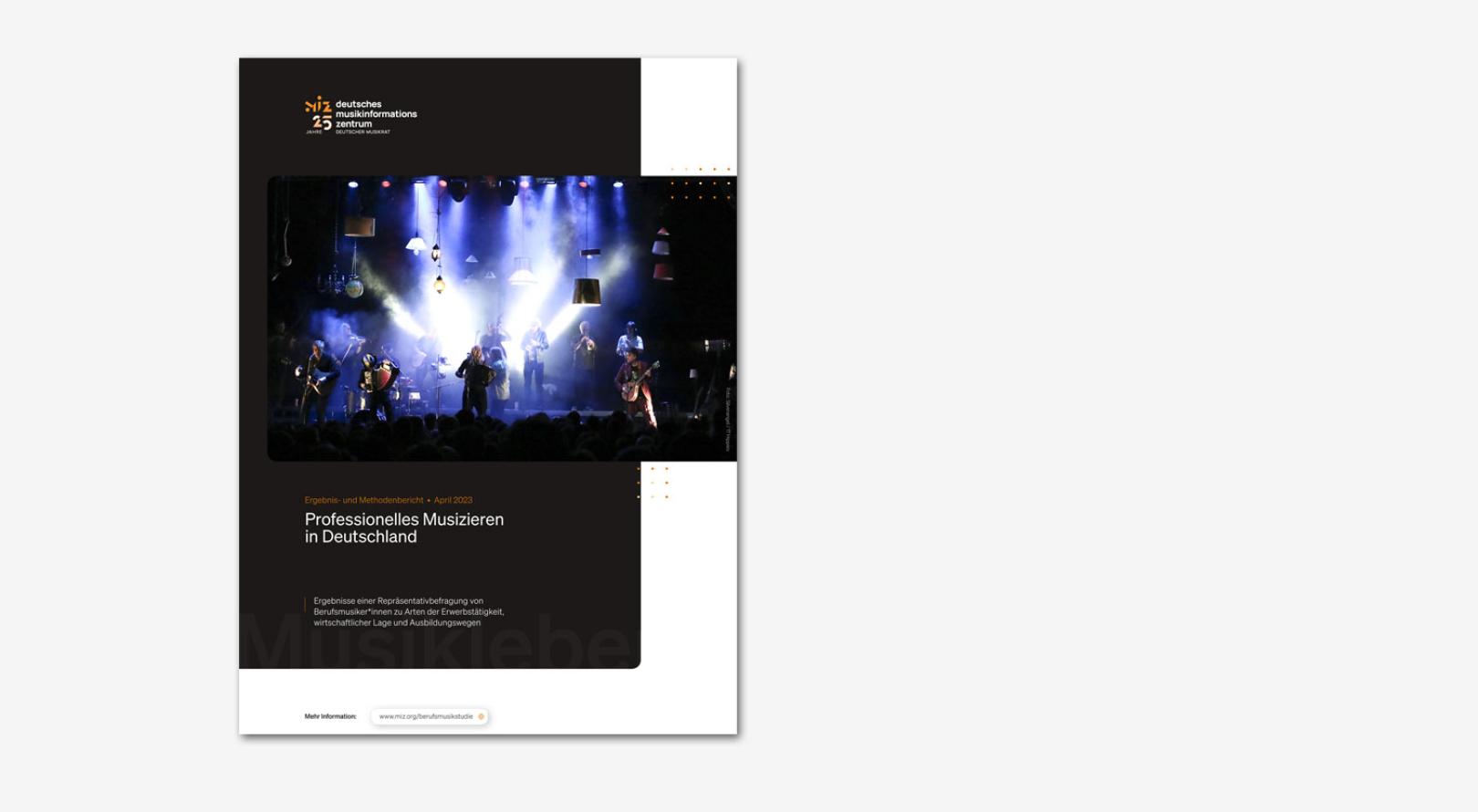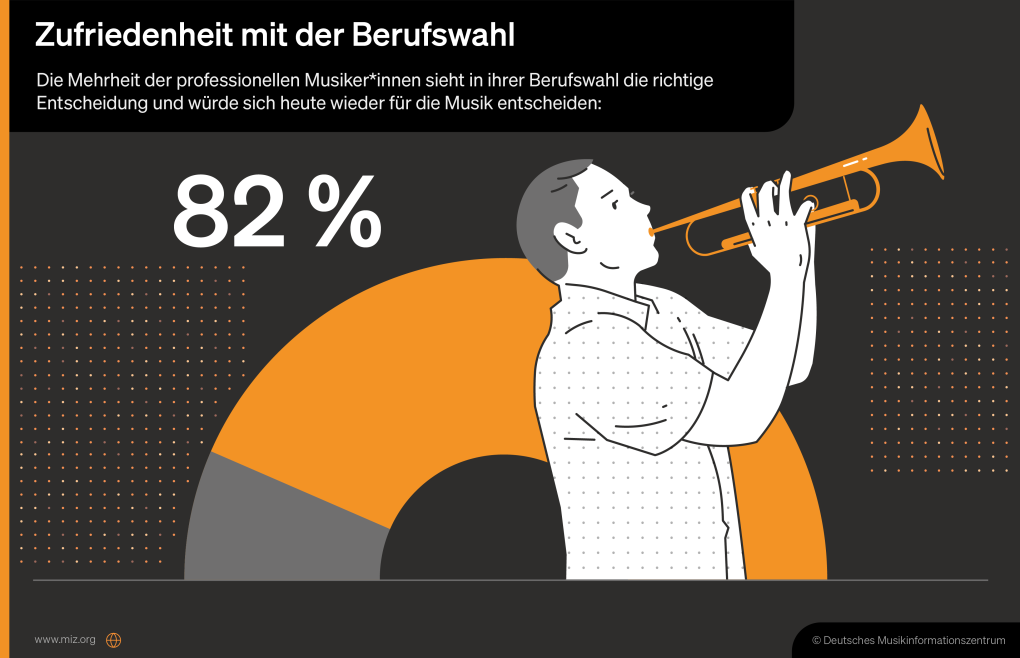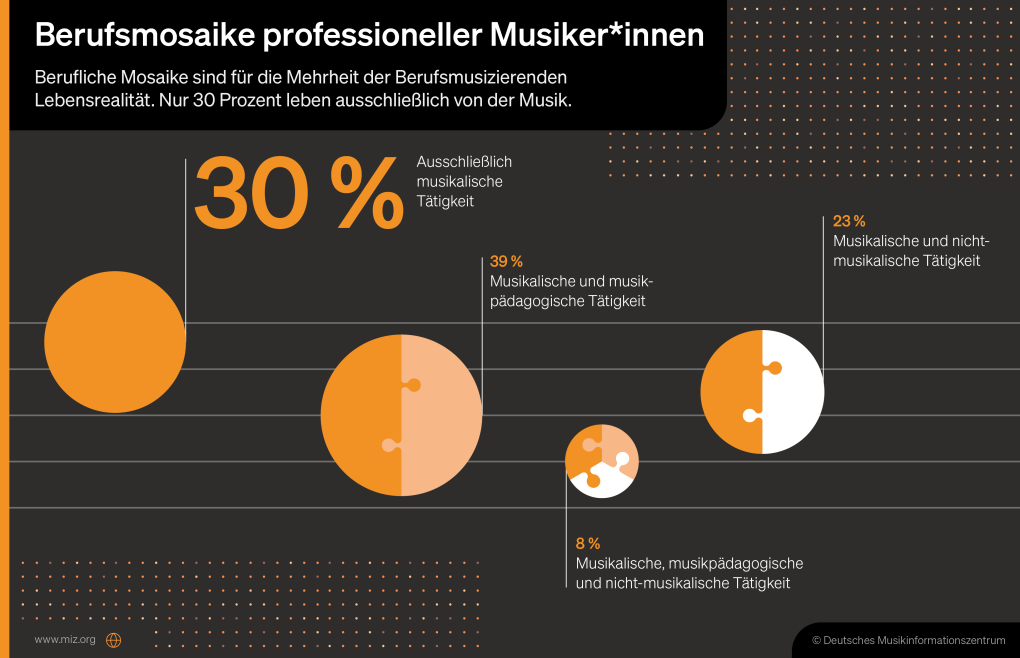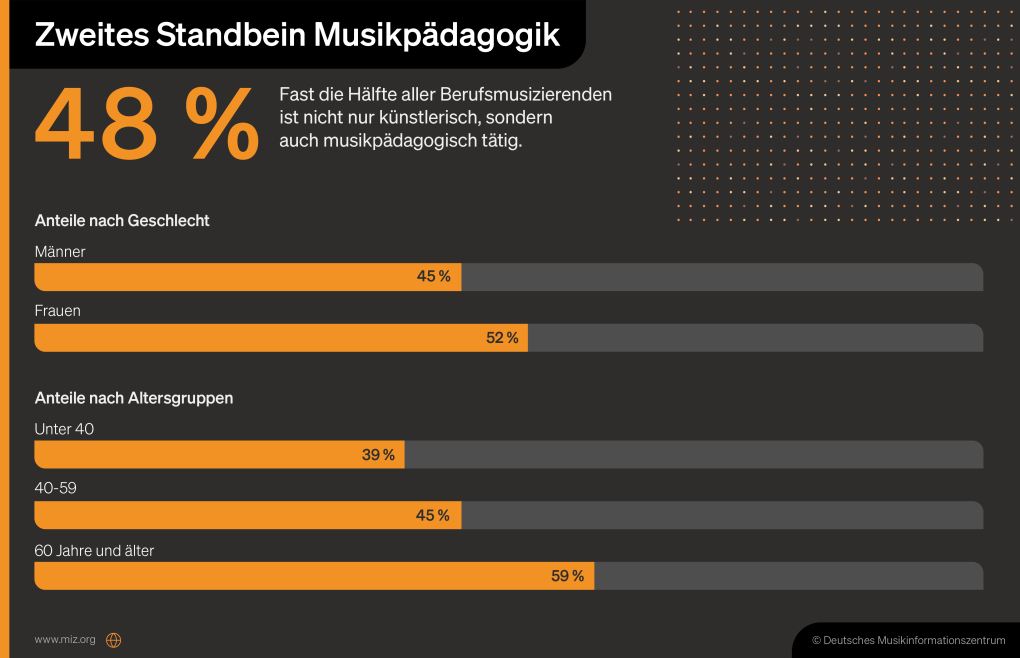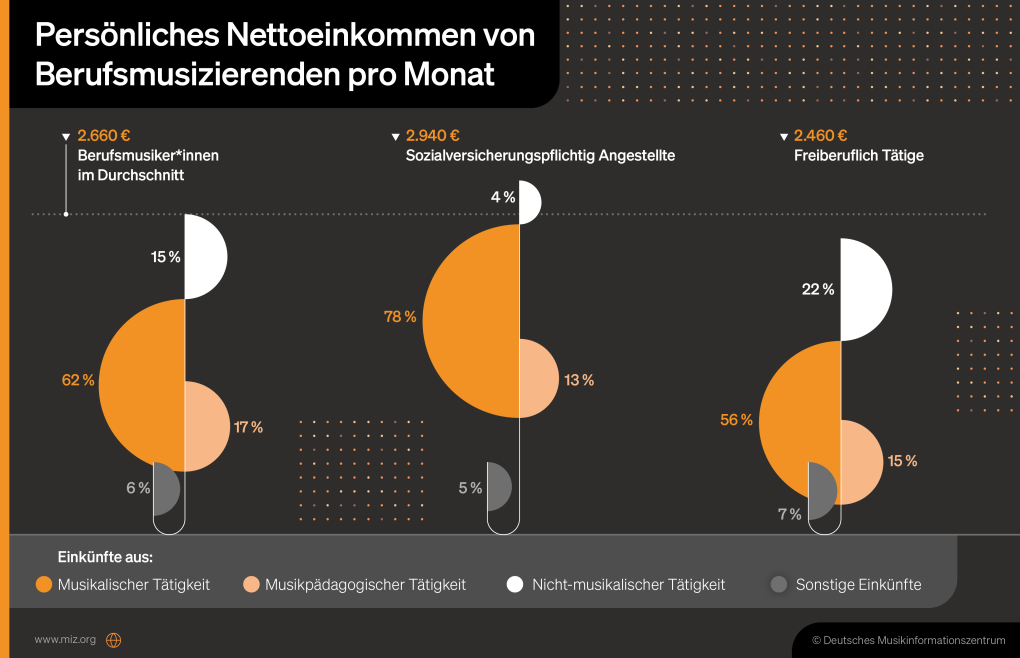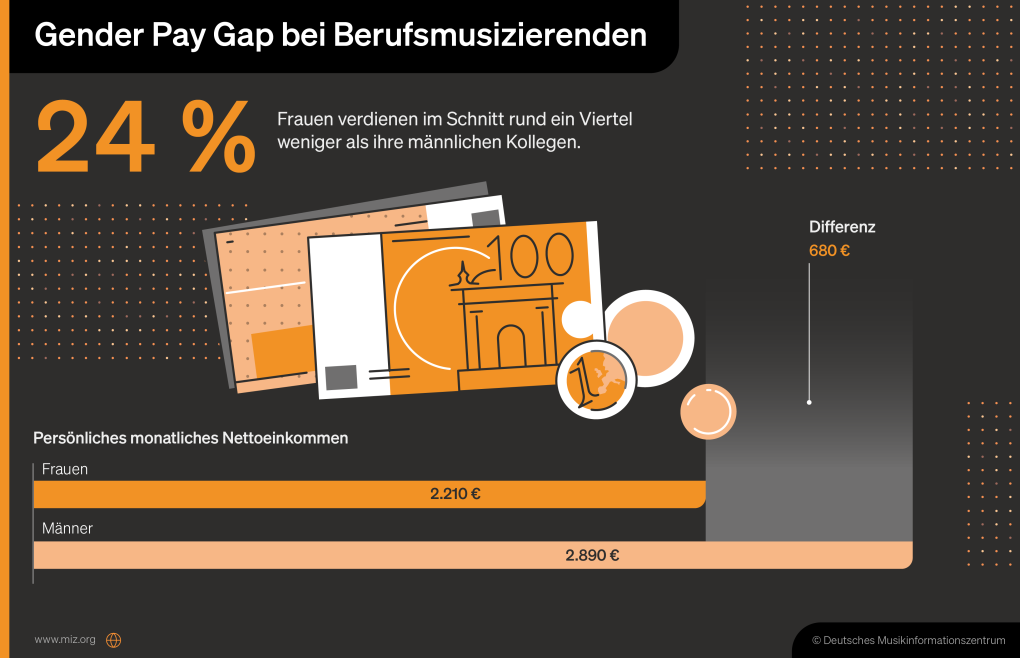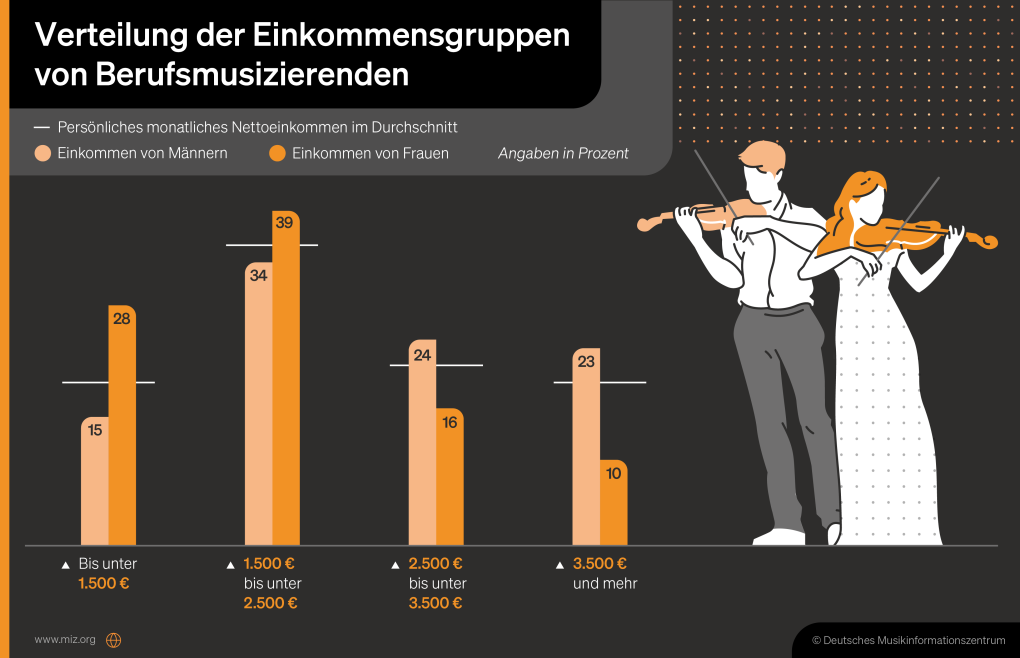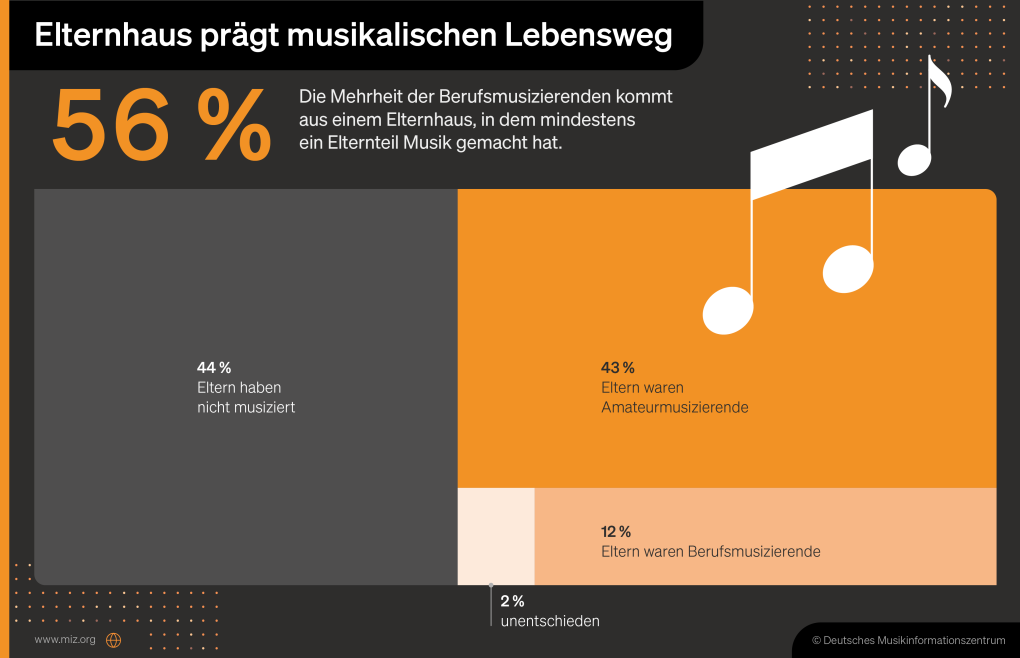
Music – an (Un)Profitable Art
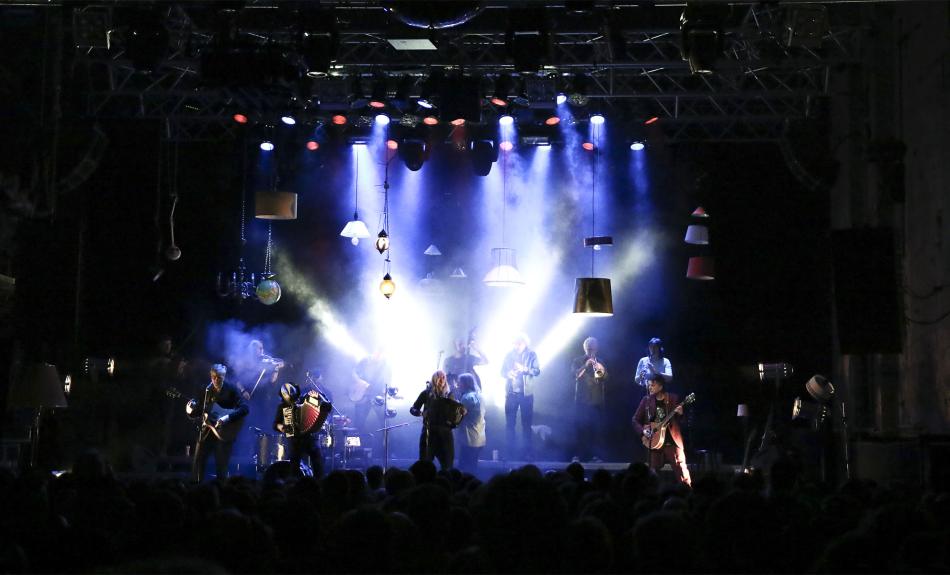
Having more than one occupation is the norm rather than the exception for the majority of professional musicians: only 30 percent work exclusively as musicians; 70 percent of professional musicians also pursue music pedagogical and/or non-musical activities in order to earn a living. Music pedagogical activities play a particularly important role for many professional musicians: almost one in two is active in music pedagogy in addition to professional music, especially women and older professional musicians over the age of 60.
However, almost one in three musicians also has an occupation that has nothing to do with music, and this is mainly for financial reasons: 57 percent of those who also have a non-musical occupation in addition to professional music would not be able to make ends meet financially without this activity, according to their own statement.
This is the result of a new representative survey conducted by the German Music Information Centre (miz) in cooperation with the Institut für Demoskopie Allensbach (IfD). The survey was conducted nationwide and across genres in November and December 2022; it is based on around 650 oral personal interviews.
Income – the Social Spread is Large
The average monthly net income of professional musicians in Germany is 2,660 euros, although one in five earns less than 1,500 euros per month. By far the largest share of professional musicians’ income comes from musical activities: 62 per cent of all income is earned by professional musicians making music. In addition to salaries and fees, this also includes income from studio recordings, artistic projects, sales of sound carriers, merchandising or distributions from collecting societies. In addition, 17 percent of the income comes from music pedagogical activities and 15 percent from professional activities that have nothing to do with music.
The results consistently show that there is a close connection between the type of employment and the income situation: Those who are employed as professional musicians and are subject to social security contributions earn an average of 2,940 euros net per month; those who work as freelancers, on the other hand, earn only 2,460 euros. In addition, freelancers receive an above-average share of their income from non-musical activities.
All in all, it shows how heterogeneous the group of professional musicians is and how wide the social spread is.
